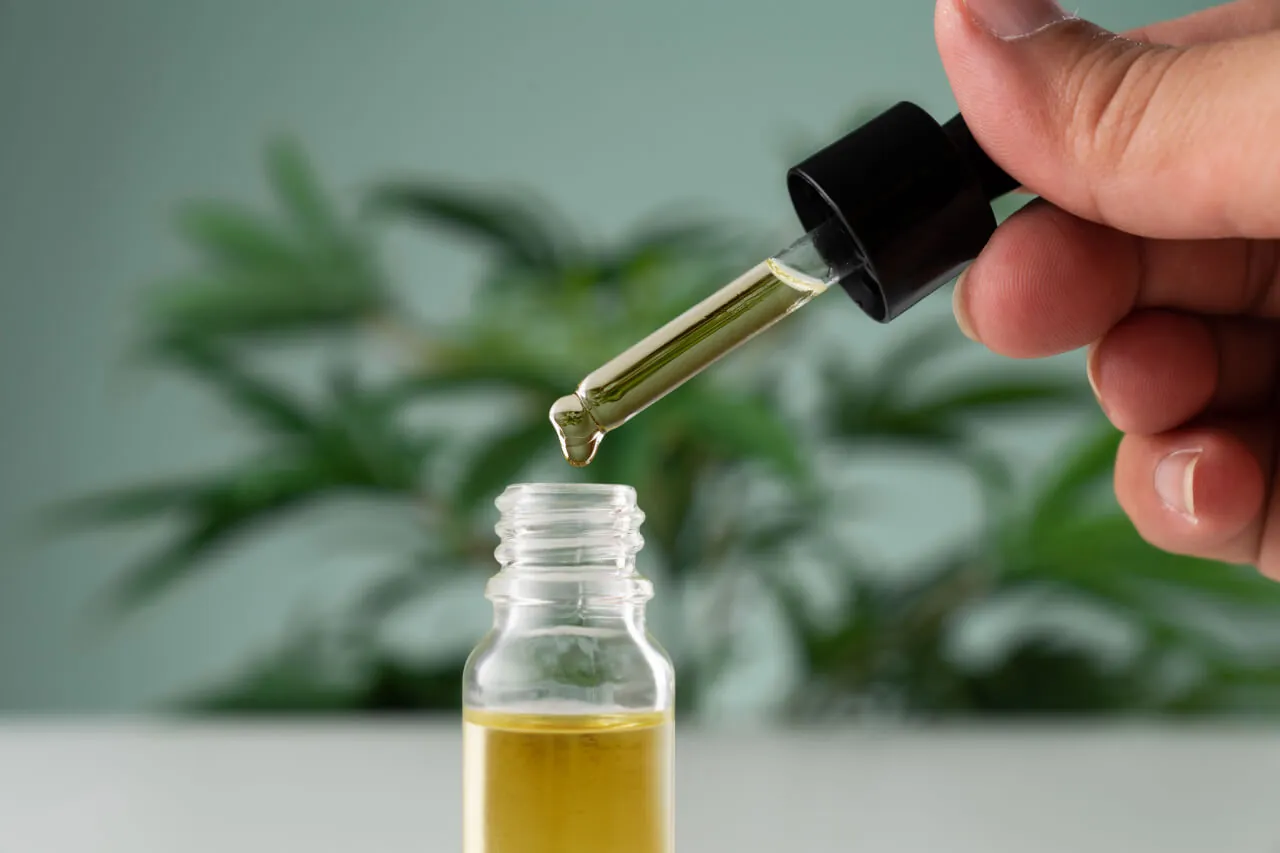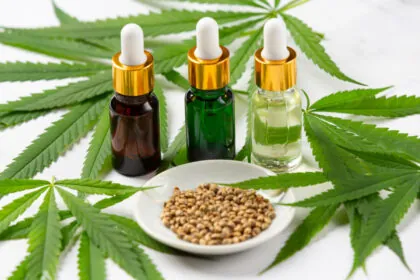Tinnitus is a condition that affects millions of people worldwide, causing them to hear ringing, buzzing, or other sounds in their ears.
It can be very annoying and interfere with their quality of life.
Some people with tinnitus also experience anxiety, depression, insomnia, and cognitive impairment.
There is no cure for tinnitus, but there are various treatments that can help manage the symptoms.
One of these treatments is CBD, or cannabidiol, a compound derived from cannabis plants.
CBD has been shown to have anti-inflammatory, anti-epileptic, neuroprotective, and analgesic properties, among others.
But can CBD really help with tinnitus? And if so, how should you use it?
In this article, we will explore the potential benefits and risks of using CBD for tinnitus, based on the current scientific evidence and expert opinions.
We will also provide some practical tips on how to choose the best CBD products for tinnitus, such as dosage, form, and quality.
By the end of this article, you will have a better understanding of whether CBD can cure or alleviate your pain, and how to use it safely and effectively.
It is the perception of sound that does not have an external source, so other people cannot hear it.
It is commonly described as a ringing sound, but some people hear other types of sounds, such as roaring or buzzing.
It is common, with surveys estimating that 10 to 25% of adults have it.
Causes
The causes are not fully understood, but it has been linked to the following factors:
Many people experience it after being exposed to loud noise in a workplace setting or at a sporting event or concert.
It is also the most common service-related disability among veterans because of loud noise they may have experienced from gunfire, machinery, bomb blasts, or other similar sources.
Hearing loss
Hearing loss, which can be caused by factors such as aging or exposure to loud noise, is strongly associated with it.
There are tiny, delicate hair cells in your inner ear (cochlea) that move when your ear receives sound waves.
This movement triggers electrical signals along the nerve from your ear to your brain (auditory nerve).
When these hair cells are damaged, they can send abnormal signals to the brain, causing tinnitus.
Earwax buildup
Earwax protects your ear canal by trapping dirt and slowing the growth of bacteria.
However, when too much earwax accumulates, it can become too hard to wash away naturally, causing hearing loss or irritation of the eardrum, which can lead to tinnitus.
Ear infections or other ear problems.
Infections, allergies, or tumors in the ear can cause inflammation, fluid buildup, or pressure changes in the middle or inner ear, which can affect the functioning of the auditory nerve and cause tinnitus.
Medications
Some medications can cause or worsen tinnitus as a side effect.
Other health conditions
It can also be a symptom of other health problems, such as high blood pressure, diabetes, thyroid disorders, cardiovascular diseases, Ménière’s disease, head or neck injuries, or brain tumors.
Symptoms
The symptoms can vary significantly from person to person.
You may hear phantom sounds in one ear, in both ears, and in your head.
The phantom sound may ring, buzz, roar, whistle, hum, click, hiss, or squeal.
The sound may be soft or loud and may be low or high pitched.
It may come and go or be present all the time.
Sometimes, moving your head, neck, or eyes, or touching certain parts of your body may produce tinnitus symptoms or temporarily change the quality of the perceived sound.
This is called somatosensory (pronounced so-ma-toe-SENSE-uh-ree) tinnitus.
Most cases are subjective, meaning that only you can hear the sounds.
In rare cases, the sound pulsates rhythmically, often in time to your heartbeat.
In these cases, a doctor may be able to hear the sounds with a stethoscope and, if so, it is considered to be objective tinnitus.
Often, objective tinnitus has an identifiable cause and is treatable.
It can affect your quality of life in various ways.
Some people find that it interferes with their ability to concentrate, sleep, or enjoy their favorite activities.
Some people also experience emotional distress, such as anxiety, depression, irritability, or anger, because of their tinnitus.
In severe cases, tinnitus can lead to social isolation, reduced work performance, or suicidal thoughts.
Potential Benefits and Risks of Using CBD
CBD, or cannabidiol, is a compound derived from cannabis plants that has various health benefits, such as reducing inflammation, pain, anxiety, and seizures.
However, there is no conclusive evidence that CBD can help, a condition that causes ringing or other sounds in the ears.
In fact, some studies suggest that CBD may worsen tinnitus or have no effect at all.
Here are some of the potential benefits and risks of using CBD:
Benefits
CBD may help with some of the side effects or comorbidities , such as anxiety, stress, insomnia, or depression.
CBD may also have neuroprotective effects that could prevent or reduce hearing loss, which is a common cause.
CBD may also improve blood flow and lower blood pressure, which could affect tinnitus symptoms.
Some anecdotal reports from people with tinnitus claim that CBD helps them manage or distract from the noise in their ears, but these are not backed by scientific research.
Risks
CBD may also cause some side effects, such as drowsiness, dry mouth, diarrhea, or changes in appetite or mood.
CBD may also increase the risk of liver damage or bleeding, especially if taken in high doses or with alcohol.
CBD may also have a negative impact on tinnitus by stimulating the endocannabinoid system, which is involved in hearing and balance.
Some animal studies have shown that CBD can worsen tinnitus or have no effect on it, depending on the dose and the type of tinnitus.
Dosage, Form, and Quality of the Use
There is no definitive answer, as different people may have different responses and preferences.
However, some general guidelines are:
Dosage
The optimal dose of CBD for tinnitus is not known, as there is no clinical evidence to support its use.
However, some experts suggest starting with a low dose of 5 to 10 mg of CBD per day and gradually increasing it until you find the dose that works best for you.
You should also monitor your symptoms and side effects and consult your doctor before changing your dose or using CBD with other medications.
Form
CBD comes in various forms, such as oils, gummies, capsules, creams, and lotions.
The form you choose may depend on your personal preference, convenience, and bioavailability (how much CBD reaches your bloodstream).
Some experts recommend using CBD oil for It, as it has a higher bioavailability than other forms and can produce full-body effects.
You can take CBD oil sublingually (under the tongue) or add it to your food or drinks.
However, you can also try other forms of CBD and see what works best for you.
Quality
Not all CBD products are created equal, and some may contain contaminants, additives, or inaccurate amounts of CBD or THC.
Therefore, you should choose a high-quality CBD product that has been tested by a third-party lab and has a certificate of analysis (COA) that shows the ingredients and potency of the product.
You should also look for products that are made from organic, non-GMO hemp and use a safe extraction method, such as CO2 extraction. You should avoid products that make unrealistic or unproven claims about CBD and tinnitus.
To summarize, the best way to use CBD for tinnitus is to start low and go slow, choose a form that suits your needs and preferences, and select a reputable and reliable product.
However, you should always consult your doctor before using CBD for tinnitus, as it may not be suitable or effective for everyone.
You should also be aware of the potential risks and benefits of CBD and tinnitus, as the research is still limited and inconclusive.
Conclusion
Tinnitus is a common and bothersome condition that causes people to hear phantom sounds in their ears.
It can have various causes and effects, and it can be difficult to treat.
Some people have turned to CBD, a compound derived from cannabis plants, as a potential remedy for their tinnitus.
However, there is no scientific evidence that CBD can cure or help with tinnitus.
In fact, some studies suggest that CBD may worsen tinnitus or have no effect at all.
CBD may also have some side effects and interactions with other medications.
Therefore, if you have tinnitus and want to try CBD, you should consult your doctor first and be cautious about the dose, form, and quality of the product you choose.
CBD may not be the answer for tinnitus, but it may have some benefits for other health conditions or symptoms.
More research is needed to understand the role of CBD and other cannabinoids in tinnitus and hearing health.
FAQs
Can CBD cure tinnitus?
While research is ongoing, there’s no conclusive evidence that CBD can cure It.
Some studies suggest it may help manage symptoms, but it’s essential to consult with a healthcare professional for personalized advice.
How does CBD potentially affect tinnitus?
CBD’s anti-inflammatory and calming properties may influence tinnitus symptoms, as inflammation can contribute to the condition.
However, individual responses vary, and more research is needed to understand the specific mechanisms.
Is CBD a guaranteed treatment for tinnitus?
No, CBD is not a guaranteed treatment for tinnitus. It may provide relief for some individuals, but its effectiveness varies.
It’s crucial to approach CBD as a complementary option and not a definitive cure.
Are there any risks or side effects associated with using CBD for tinnitus?
While CBD is generally well-tolerated, side effects such as fatigue, changes in appetite, or interactions with medications may occur.
Consult with a healthcare professional before incorporating CBD into your routine, especially if you’re on other medications.
How should one use CBD for tinnitus, if at all?
If considering CBD for tinnitus, start with a low dose and monitor your response.
It’s advisable to use high-quality products, and consulting a healthcare provider is crucial to determine the appropriate dosage and method of consumption.
Can I replace traditional tinnitus treatments with CBD?
CBD should not replace conventional treatments prescribed by healthcare professionals.
It can be explored as a complementary approach with their guidance.
Always inform your healthcare provider about any complementary therapies you are considering.





